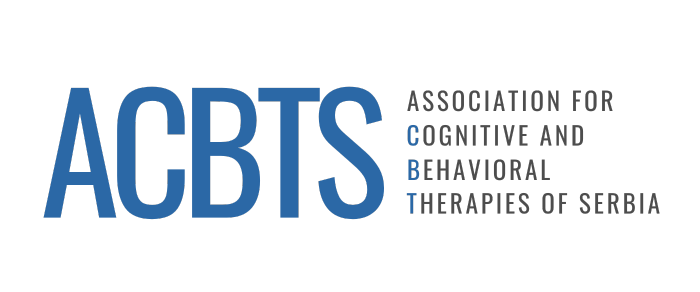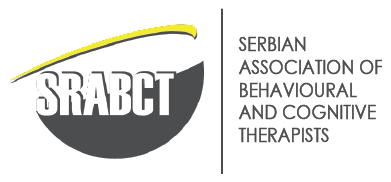Meet the Speakers
Keynote Speakers
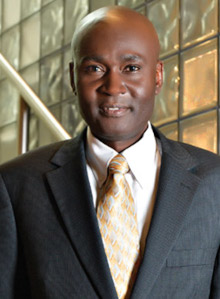

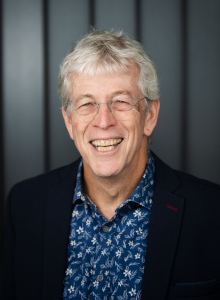
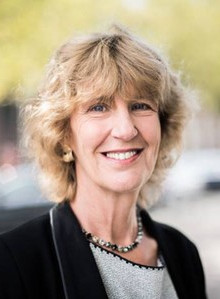

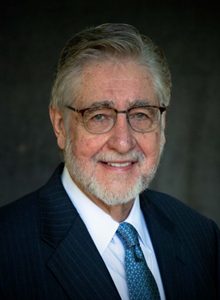
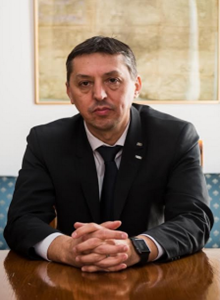
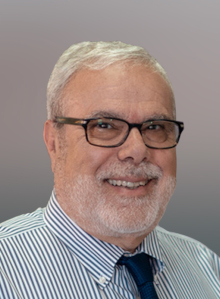
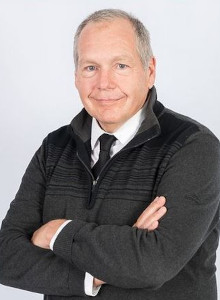
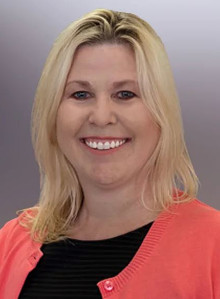
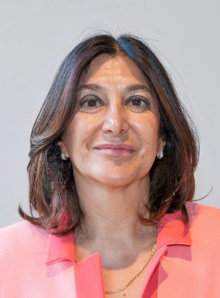

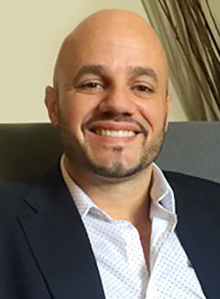
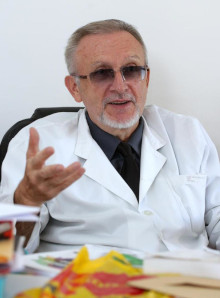
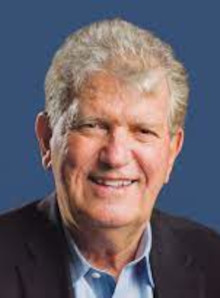
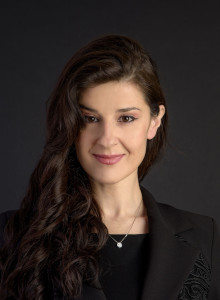
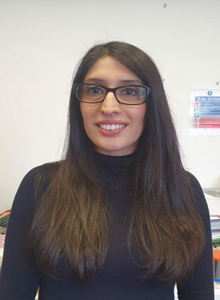
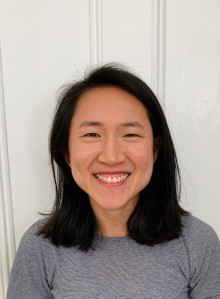

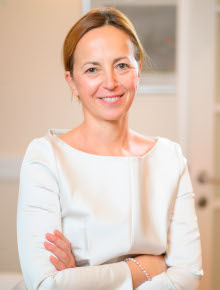

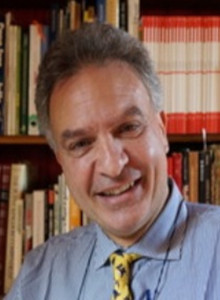
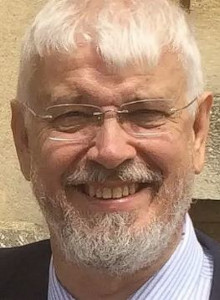
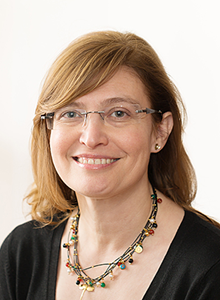
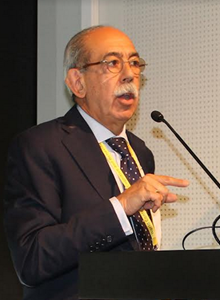

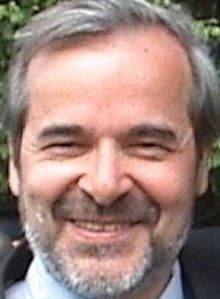
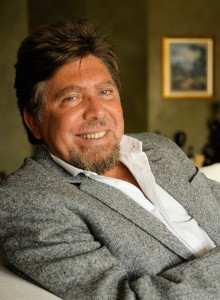
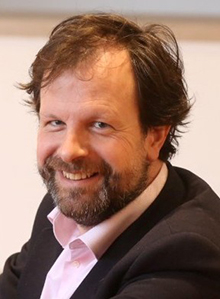
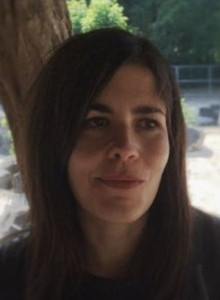

AG AHMED (Canada)
College of Medicine, University of Saskatchewan
AG Ahmed is a psychiatrist, an Associated Fellow and accredited supervisor at Albert Ellis Institute of Rational Emotive Behavior Therapy. Dr. Ahmed has trained mental health professionals in Canada, the USA and Africa, including clinicians at the WHO Centre for Research and Training in Mental Health. His primary clinical practice is based at the Ottawa and Brockville campuses of the Royal Ottawa Health Care Group in Ontario, Canada. He holds an academic position as an Associate Professor in the Department of Psychiatry at the University of Ottawa, Adjunct Professor of Psychiatry at Queen’s University and a cross appointment in the School Criminology, University of Ottawa. Dr. Ahmed’s research interests and clinical practice include the assessment and treatment of patients with major mental disorders, dysfunctional anger and aggression and psychotherapy in forensic settings. He has authored peer-reviewed articles and has presented both nationally and internationally in his areas of special interest and mental health in general. He is the co-author of the recently published “Addiction and Co-occurring Disorders from a SMART Recovery Perspective: A Manual for Group Therapists.

University of Pennsylvania
President of Beck Institute, Judith S. Beck, PhD is a Clinical Professor of Psychology in Psychiatry at the University of Pennsylvania. Dr. Beck is a consultant for several NIMH studies and presents workshops nationally and internationally on cognitive therapy for a wide variety of psychiatric disorders and medical problems with psychological components. She has written numerous articles and chapters on various applications of cognitive therapy. Dr. Beck is the author of the primary text in the field, Cognitive Therapy: Basics and Beyond, which has been translated into 20 languages. Her other books include Cognitive Therapy for Challenging Problems: What to Do when the Basics Don’t Work, The Oxford Textbook of Psychotherapy, and Cognitive Therapy of Personality Disorders.

JAMES BENNETT-LEVY (Australia)
Southern Cross University
James Bennett-Levy is Professor in Mental Health and Psychological Wellbeing at Sydney University’s University Centre of Rural Health (UCRH). As a trainer, researcher, and writer, he has an international reputation, having taught in 27 countries and co-written 5 books for therapists, including key textbooks on imagery, behavioural experiments and low intensity interventions. These books have been translated into 12 languages. He is one of the world’s most published researchers on therapist training, with groundbreaking research on his self- practice/self-reflection (SP/SR) approach to training (2001-23) and key theoretical papers on personal practice for therapists (2018-19) and therapist skill development (2006-14). Recently, he has turned his attention to psychedelic-assisted therapy (PAT). He is a Chief Investigator on a PAT clinical trial and is one of the founders of Psychedelic Institute Australia, an organization dedicated to evidence-based training of PAT therapists.

Ghent University
Caroline Braet received her Ph.D. from the University of Ghent in 1993, with a specialization in the investigation of psychological aspects of childhood obesity. She has achieved postgraduate specialisations in Developmental Psychology and in Cognitive Behavior Therapy. At he moment, she is a full professor and head of the Department of Developmental, Personality, and Social Psychology at Ghent University in Belgium. She is teaching developmental and clinical aspects of childhood therapy and is researching programmes for children. She also serves as the coordinator, supervisor, and a therapist at the Children’s University Hospital at Ghent University where she provides childhood obesity consultation and at the Ghent University Child Mental Health Center. She is the author or co-author of over 130 scientific publications.

MARIA BRAGESJÖ (Sweden)
Center for Psychiatry Research, Karolinska Institutet
Maria Bragesjö a is clinical psychologist and post-doctoral researcher at the Center for Psychiatry Research, Karolinska Institutet, Stockholm, Sweden. Her research is currently focused on finding new formats to improve the effect and increase the availability of evidence-based treatment of PTSD using intensive treatment formats and digital platforms. Dr Bragesjö is also a certified trainer in prolonged exposure.

EDWARD CRAIGHEAD (USA)
Department of Psychology, Emory College of Arts and Sciences
W. Edward Craighead, Ph.D., ABPP, earned his PhD in Psychology at the University of Illinois at Urbana-Champaign in 1970. He was appointed Assistant Professor at Pennsylvania State University (State College) where he progressed through the academic ranks to Professor and Director of Clinical Training. In 1985, he moved to a Professorship in Duke University Psychiatry, directed a CBT program, and served as Director of Clinical Training in Psychology. After a decade at Duke, he moved to the University of Colorado-Boulder as Professor and Director of Clinical Training, and he subsequently was selected to serve as Chair of the Psychology Department .
He has co-authored/edited 13 books, including a widely used graduate textbook, Psychopathology, co-edited with David Miklowitz and Linda Craighead. He helped launch and later served as Editor of Clinical Psychology: Science and Practice, and he was the Editor of Behavior Therapy. He is a Past-President of: the Association for Advancement of Behavior Therapy (now ABCT), the Society for a Science of Clinical Psychology, and the Society of Clinical Psychology (the Clinical Division of the American Psychological Association). From the Society of Clinical Psychology, he received the Florence Halpern Award for Distinguished Professional Contributions to Clinical Psychology and a Presidential Citation for his Lifetime Contributions to Clinical Psychology. He recently was selected for the Lifetime Achievement Award from the Academy of Cognitive and Behavioral Therapies, and Member of Distinction of the Anxiety and Depression Association of America.
In addition to his scholarly work and teaching, Dr. Craighead established and currently oversees a child, adolescent, and young adult clinic that each year serves approximately 1,500 patients. Together with his wife, Linda Wilcoxon Craighead, Emory Professor of Psychology and Director of Clinical Training, he established an APA accredited Child and Adolescent Internship that is fully-affiliated with Emory Psychology and trains three predoctoral interns each year. He continues to provide therapy for individuals with clinical problems, primarily Major Depressive and Bipolar Disorders.

DANIEL DAVID (Romania)
Babeș-Bolyai University
Daniel David is a professor of clinical cognitive sciences (clinical psychology/evidence-based psychotherapy) at the Babeș-Bolyai University (Cluj-Napoca, Romania), an adjunct professor at Icahn School of Medicine at Mount Sinai (New York, USA), and former director for research at the Albert Ellis Institute (AEI – New York, USA). Dr. David is also a supervisor in CBT (ACBT and AEI), a practicing psychologist, and an internationally recognized presenter/trainer in CBT. Based on his scientific and professional accomplishments, he is a member of the Romanian Academy of Science, a member of the Academia Europaea (the Academy of Europe), and he is included in the top 2% most cited scientists (based on Elsevier & Stanford by Scopus, 2022).

St. John’s University
Raymond A. DiGiuseppe, Ph.D., ABPP is Professor of Psychology and Chair of the Institutional Review Board, and studies anger as a clinical problem. He has promoted the recognition of anger as a form of psychopathology, and studies the diagnosis, assessment, and treatment of persons with anger problems. He has developed standards for identifying anger diagnostic disorders. Dr. DiGiuseppe has published two psychological tests assessing dysfunctional anger: the Anger Disorders Scale (ADS) for adults and the Anger Regulation and Expression Scale (ARES) for children and adolescents. He works on the development of the theory, practice, and empirical research support of Rational Emotive Behavior Therapy and Cognitive Behavior Therapies. He is presently developing measures of Ellis’ concept of irrational and rational beliefs and their relationship to other cognitive behavior constructs and emotional disturbance.

KEITH DOBSON (Canada)
University of Calgary
Keith Dobson is a Canadian psychologist, academic and researcher. He is a professor of Clinical Psychology at the University of Calgary in Canada and has also served as Head of Psychology Department and Director of the Clinical Psychology program at the university. He was the President of the World Confederation of Cognitive and Behavioral Therapies.
Dobson’s research is primarily focused on cognition and psychopathological states, especially depression. He has worked on both cognitive models and mechanisms in depression, and the treatment of depression. His work on cognitive behavioral therapy is the hallmark of his research. Dobson’s research has resulted in over 300 published articles, numerous book chapters and books that include Evidence-based Practice of Cognitive behavior Therapy (2017), The Therapeutic Relationship in Cognitive-behavioral Therapy (2017) and the Handbook of Cognitive-behavioral Therapies (2019).
Dobson has served as the president of the Academy of Cognitive Therapy, Canadian Psychological Association, International Association for Cognitive Psychotherapy and the British Columbia Psychological Association.

Albert Ellis Institute
Kristene A. Doyle, Ph.D., Sc.D., heads the Albert Ellis Institute (AEI) where she leads the Eating Disorders Treatment and Research Center and serves as a licensed psychologist. With over two decades at AEI, she’s assumed numerous executive roles and is a recognized expert in Rational Emotive Behavior Therapy (REBT), contributing to its global reach across multiple continents.
Dr. Doyle actively trains therapists worldwide and has co-authored key texts on REBT. Her research focuses on eating disorders, child and adolescent REBT applications, and cognitive-behavioral therapy outcomes. She has published widely and presented her work internationally.
Beyond AEI, Dr. Doyle is an adjunct professor at St. John’s University and Teachers College, Columbia University, teaches doctoral psychology courses, and holds roles with The Institute of General Semantics and other health and welfare organizations. She’s a sought-after media commentator and is featured in prominent media outlets.

EMDR Association of Italy
Dr Fernandez trained in cognitive behavioral therapy (CBT) and has been on the faculty of the Italian Cognitive Behavioral Association for nearly 20 years. Author of many papers, articles and books on trauma, EMDR, Early Psychological intervention and mass disasters. Member of the Board of Directors of the Italian Federation of Scientific Psychological Societies and of the Trauma and Disasters Committee (European Federation of Psychological Associations). President of EMDR Italy Association and Past President of EMDR Europe Association.
She has organized interventions of psychological support in cooperation with Civil Defense, Military and Law enforcement. She trains graduate students and clinicians in trauma, EMDR and crisis intervention.
In 2019 awarded with the title of Knight Commander by the President of Italy, for her contribution to society, public health and for the Early interventions in the aftermath of mass disasters.

STEFAN G. HOFMANN (Germany)
Philipps University of Marburg
Stefan G. Hofmann is the Alexander von Humboldt Professor at Philipps University of Marburg (Germany) where he holds the LOEWE Spitzenprofessur for Translational Clinical Psychology (Germany). Prof. Hofmann is a leading expert in researching and treating anxiety disorders, with a focus in Cognitive Behavioral Therapy. He is the editor of Cognitive Therapy and Research. In 2023, he received the Career/Lifetime Achievement Award by the Association for Behavioral and Cognitive Therapies and has been named a Highly Cited Researcher every year since 2015. Prof. Hofmann is a fellow of AAAS, APA, APS, and ABCT. He has received many awards, including the Aaron T. Beck Award for Significant and Enduring Contributions to the Field of Cognitive Therapy and the Humboldt Research Award. He was an advisor to the DSM-5 Development Process and was a member of the DSM-5 Anxiety Disorder Sub-Work Group and member of the Cross-Cutting Culture Review Group of the DSM-5-TR. He has published more than 500 peer-reviewed scientific articles and 20 books.

Balanced Minds
Dr Chris Irons is a clinical psychologist, researcher, writer and trainer specialising in Compassion Focused Therapy.
He is co-director of Balanced Minds, a London based organisation providing compassion-focused psychological interventions for individuals and organisations. He also works for the Compassionate Mind Foundation, and as a Visiting Lecturer at the University of Derby.
For almost two decades, Chris has worked with Professor Paul Gilbert and other colleagues on research and clinical developments linked to CFT. He was involved in some of the initial research papers and book chapters on CFT (Gilbert & Irons, 2004, 2005), and has published many articles and book chapters on compassion, attachment, shame and self-criticism. He has authored five books, including ‘The Compassionate Mind Workbook’ (with Dr Elaine Beaumont) and ‘CFT from the Inside Out’ (with Russell Kolts, James Bennett-Levy and Tobyn Bell), and ‘The Compassionate Mind Approach for Difficult Emotions’.
Chris regularly provides CFT teaching, training, workshops and retreats across the world. Chris is an experienced clinician, having worked in the NHS and in independent practice for many years. He has recently been leading on the development of compassion based approaches for the general public to help people develop a more compassionate way of relating to themselves and others.

MIRO JAKOVLJEVIĆ (Croatia)
University of Zagreb
Miro Jakovljević, MD, PhD, Professor Emeritus, University of Zagreb. He was Head of the Department of Psychiatry, Faculty of Medicine, University of Zagreb in University Hospital Centre Zagreb (2007-2015), Head of the Department of Psychiatry, School of Medicine, University of Mostar (2000-2013), and the vice-dean for science of the Mostar School of Medicine, Bosnia and Herzegovina (2007-2013). He published 20 books and more than 200 scientific and professional papers, also having 28 chapters in the books of other authors. He is a member of the European Academy of Science and Arts, a foreign member of the Academy of Sciences and Arts of Bosnia and Herzegovina, a member and vice-president of the International Academy of Sciences and Arts in Bosnia and Herzegovina, full member of the Croatian Academy of Medical Sciences, the president of the Croatian Society for Psychopharmacotherapy and Biological Psychiatry of Croatian Medical Association. He was ECNP ambasador for Croatia. The area of scientific interest: clinical psychopharmacology and creative psychopharmacotherapy, biological psychiatry, holistic psychotherapy, spiritual psychiatry and transdisciplinary integrative psychiatry, public and global mental health, compassionate society and empathic civilization.

ROBERT L. LEAHY (USA) – Online
Weill Cornell Medical College
Robert L. Leahy (B.A., M.S., Ph.D., Yale University), Completed a Postdoctoral Fellowship in the Department of Psychiatry, University of Pennsylvania Medical School under the direction of Dr. Aaron Beck, the founder of cognitive therapy. Dr. Leahy is the Past-President of the Association for Behavioral and Cognitive Therapies, Past-President of the International Association of Cognitive Psychotherapy, Past-President of the Academy of Cognitive Therapy, Director of the American Institute for Cognitive Therapy (NYC), and Clinical Professor of Psychology in Psychiatry at Weill-Cornell University Medical School.
Dr. Leahy is the Honorary Life-time President, New York City Cognitive Behavioral Therapy Association and a Distinguished Founding Fellow, Diplomate, of the Academy of Cognitive Therapy. He has received the Aaron T. Beck award for outstanding contributions in cognitive therapy. In 2023, he was named the Global Ambassador by the Association of Cognitive and Behavioral Therapies and he also received the Outstanding Clinician Award from ABCT.

Clinic for Children and Youth, Institute of Mental Health, Belgrade
Marija Mitković Vončina (MD, PhD) is a psychiatrist at the Clinic for Children and Youth, Institute of Mental Health, Belgrade, and teaching assistant in psychiatry, Faculty of Medicine, University of Belgrade. She is a CBT therapist and educator/supervisor, representative of the Serbian Association of Behavioral and Cognitive Therapists (SRABCT) within the European Association for Behavioural and Cognitive Therapies (EABCT), a board member of the Preventive Psychiatry Section – World Psychiatric Association (WPA), and board member of the Association for Child and Adolescent Psychiatry and Allied Professions of Serbia (DEAPS). Her clinical and scientific expertise clusters around youth psychiatry, emotion dysregulation of adolescents, childhood trauma/parenting, and CBT interventions (group CBT, transdiagnostic approach). In addition to international and national research projects (supported by EABCT, UNICEF, DEAPS), she has been involved in innovative nation-wide preventive projects in domains of youth mental health and parenting (in collaboration of the Institute of Mental Health with organizations such as UNICEF, Orygen, relevant national bodies). She is specially devoted to creating psychosocial intervention programs for youth in busy settings, and to advocating for CBT-based interventions to be available to all youth and parents in need, in key public sectors (healthcare, education, social welfare), and in all prevention levels (universal, selective, indicated).

British Association for Behavioral and Cognitive Psychotherapies
Saiqa Naz is a CBT therapist and the President of the British Association for Behavioral and Cognitive Psychotherapies (BABCP). Ms. Naz has previously worked as a Low Intensity CBT worker and is now completing her clinical psychology training. Prior to this, Ms. Naz worked in Sheffield’s Specialist Psychotherapy Service. She is also the previous Chair of BABCP’s Equality and Culture Special Interest Group. Ms. Naz is on the board of editors for The Cognitive Behavior Therapist and Behavioral and Cognitive Psychotherapies Journals. Ms. Naz is co-author of the Improving Access to Psychological Therapies (IAPT) Black, Asian, and Minority Ethnic Positive Practice guide. This guide was developed to reduce ethnic health inequalities in primary care mental health services in England. Ms. Naz has facilitated workshops for psychological therapies professionals both within and outside of IAPT on developing cultural competence. Ms. Naz’s interests lie in community outreach and public engagement work to help bridge the gap between CBT and diverse communities.

Department of Psychology, University of Toledo
Clarissa Ong, Ph.D., is an Assistant Professor and the Clinic Director in the Department of Psychology at the University of Toledo. Her research focuses on developing, evaluating, and disseminating process-based approaches to therapy for diverse populations, especially as applied to OCD and perfectionism. She has co-authored over 75 journal articles and book chapters as well as two books: The Anxious Perfectionist and ACT in Steps. Her work has been funded by the Association for Contextual Behavioral Science and the International OCD Foundation. Dr. Ong has conducted some of the earliest applications of process-based idionomic research tools to the analysis of clinical interventions and she is editing a special issue of the Journal of Contextual Behavioral Science on that topic.

University of Southampton
A Clinical Psychologist by background, Margo is the first Black woman to be promoted to the role of Programme Director on a Doctorate in Clinical Psychology programme in the UK. She is also seconded into a part-time role of EDI Lead for the Psychological Professions Network South East providing a strategic overview to the EDI work that is being done, and needs to be done, within the psychology professions. Margo has an active interest in helping the world of psychology to become more inclusive and representative of the multicultural nation where we live and work.

MILICA PEJOVIĆ MILOVANČEVIĆ (Serbia)
Faculty of Medicine, University of Belgrade
Prof. Dr. Pejović Milovančević is renominated child psychiatrist, professor at the Faculty of Medicine, University of Belgrade, and the acting director of the Institute for Mental Health. Beyond her professional affiliations she is also strategic leader of the health system reform, engaging in the fields that are responding to the needs of the most vulnerable children and their families. As such she is President of the Inter-sectorial Special Working Group of the Ministry of Health for Supporting and Monitoring of the Implementation of the National Program for Early Childhood Development, as well as a Special Working Group for Supporting Children and Families of Children with Autism Spectrum Disorders. In the period from 2010-2018, she was the president of the Special Working Group of the Ministry of Health of the Republic of Serbia for the implementation of the Special Protocol of the Health Care System for the Protection of Children from Abuse and Neglect. In these roles she has supported development of health system capacities to support families for nurturing care through home visiting, local teams for prevention and response to violence against children, as well as through expansion of the network of family oriented early childhood intervention services. She is currently the president of the Society for Child and Adolescent Psychiatry and Related Professions of Serbia (DEAPS). According to SCOPUS, her works were cited 11,860 times, total h index 24. Beyond Ministry of Health of the Republic of Serbia, she cooperates closely with other Ministries – such as education, family, social welfare as well as UNICEF, the Center for Children’s Rights of Serbia and other international and national organizations.

Southern Health NHS Foundation Trust
Dr Peter Phiri, PhD, Director of Research & Innovation at Southern Heath NHS Foundation Trust, UK. Visiting Academic in the School of Psychology at the University of Southampton, UK. An RMHN/Specialist Cognitive Behaviour Psychotherapist with extensive clinical expertise in the NHS for over two decades in various care settings. An expert in cultural adaptations of CBT across diverse populations. A clinical trialist, conducting research across disease sequelae; Author of several books including “Clinical Trials and Tribulations” and Cultural adaptation of CBT for Serious Mental illness: a guide for training and practice. He has published widely and disseminated work both at national and international levels. He is a British Association for Behavioural & Cognitive Psychotherapies (BABCP) Fellow. A peer reviewer of several scientific journals and Associate Editor.

University of Bologna
Professor of Psychotherapy at University of Bologna. CBT Supervisor and Teacher. EMDR Therapist and Supervisor. Chief of the Psychotherapy Program and the Neurocogntive rehabilitation Program in Schizophrenia at the Department of Mental Health in Pollena ( Naples, Italy). Author of the first Italian randomized controlled trial on cognitive behavior therapy in schizoprenia and of a validation of (DV-SA) a self-administered questionnaire about delusions and hallucinations.

University of Oxford
Paul Salkovskis qualified as a clinical psychologist in 1979 at the Institute of Psychiatry and Maudsley Hospital. He worked for six years in Yorkshire (in Huddersfield then Leeds) as a full-time NHS clinical psychologist before moving to Oxford in 1985 as a Research Clinical Psychologist. In Oxford he was subsequently awarded a Wellcome Trust Senior Research Fellowship and became Professor of Cognitive Psychology. He left in 2000 to work at King’s College London Institute of Psychiatry as Professor of Clinical Psychology and Applied Science and Clinical Director in the Centre for Anxiety Disorders and Trauma (2000-2010). He led the SLaM and national outpatient OCD service, and the outpatient NCG service.
In 2010 he was appointed Programme Director for the Clinical Psychology Doctorate Programme at Bath, with the brief of starting an entirely new programme based on best practice in the field. He has continued clinical work in the NHS throughout his career and on his return to Oxford set up a NHS National Specialist Clinic. He is strongly committed to the continued improvement of psychological treatments and dissemination of evidence-based and empirically grounded approaches in partnership with stakeholders.

Coimbra University
Maria do Céu Salvador is an Auxiliary Professor at Coimbra University in Portugal. She teaches cognitive behavioral models and cognitive behavior therapy with children and adolescents. She also supervises students in their last year of training in CBT. She belongs to the Research Centre for Cognitive Behavioral Studies and Intervention, where her main research fields are assessment instruments, social anxiety in adolescents and adults, its comprehension models, treatment efficacy, and bridging the gap between second and third generation therapies. She is also an accredited CBT psychotherapist and supervisor.

Catania University
Tullio Scrimali, M.D. and Ph.D., is Professor of Clinical Psychology in Catania University, Department of Medical, Chirurgical Sciences and Advanced Technologies. He serves as Member, Teacher, and Supervisor, in the European Association for Cognitive and Behavioural Therapies (EABCT) and in the Academy of Cognitive Therapy (ACT). He is the Founder and Director of ALETEIA International, European School of Cognitive Therapy, located in Enna and Catania, Italy. This School is credited by the Italian Minister for University and works under the umbrella of EABCT. The main research of professor Scrimali focuses on schizophrenia and psychosis, eating disorders, translating discoveries from neuroscience into clinical applications (applied neuroscience and neuroscience-based cognitive therapy), biofeedback-based strategies for emotion regulation, integrating cannabidiol-based phytotherapy into cognitive therapy. Tullio Scrimali has more than 180 scientific publications, including 11 books and is Associate Editor in the Journal of Evidence-Based Psychotherapies and in BMC-Psychology.

University of Macedonia
Gregoris Simos, M.D., is Professor of Psychopathology, University of Macedonia, Thessaloniki, Greece. He is an internationally respected psychiatrist and a recognized authority in the field of contemporary psychotherapies. He is a Founding Fellow, Diplomate, and Certified Consultant/Trainer at the Academy of Cognitive and Behavioral Therapies, and a member of the International Advisory Committee of the Beck Institute for CBT.

VLADAN STARČEVIĆ (Australia)
University of Sydney
Vladan Starčević is a Professor of Psychiatry at the Faculty of Medicine and Health of the University of Sydney and Consultant Psychiatrist and Head of the Academic Department of Psychiatry at Nepean Hospital in Sydney, Australia. His main professional and research interests include anxiety and obsessive-compulsive and related disorders, complex emotional states, personality disorders and both psychotherapeutic and psychopharmacological approaches to treating common mental disorders. He has pioneered research and scholarly work on problematic online gaming, cyberchondria and other problematic online behaviors. Professor Starčević has authored or co-authored over 350 articles in peer-reviewed journals and book chapters. He is also the author of four books on various aspects of anxiety disorders and has co-edited five more books on hypochondriasis, health anxiety, anxiety disorders and mental health issues and psychopathology associated with use of the digital technologies.

MEHMET SUNGUR (Turkey)
Istanbul Kent University, Istanbul
Mehmet Sungur is professor of psychiatry at Istanbul Kent University. He received training in cognitive behaviour therapy (CBT), sexual and marital therapies at the Institute of Psychiatry (King’s College), London. He is accredited as a ‘cognitive behaviour therapist’ by the Europoean Association of Behaviour and Cognitive Therapy (EABCT). He is a founding fellow member, certified cognitive therapist/supervisor of the Academy of Cognitive Therapy (ACT) and International Advisory Board member of the Beck Institute (BI). He is the immediate past president of the International Association for Cognitive Psychotherapy (IACP) and has been one of the past presidents of the EABCT. Dr Sungur is now the president of the European Federation of Sexology (EFS) and also a board member of the recently established World Confederation of Cognitive and Behavioural Therapies (WCCBT).He is also an executive board member of the World Assocition of Sexual Heath(WAS)
His clinical practice covers a wide range of clinical syndromes with a special emphasis on cognitive behavioural treatment of anxiety disorders and sexual and marital problems. He has presented workshops and keynotes in many international congresses. He played a leading role in the dissemination of the practice of CBT and sex-couple therapy. He is the president of Turkish Association of Cognitive and Behaviour Therapy (TACBT) since its establishment.
He has received some national and international awards, including “Schizophrenia Reintegration Award”, “Gold Medal from European Federation of Sexology”, “Julia Heiman Honorary Award” for his contributions in the area of couple and sex therapy. He has published more than 100 papers mainly about CBT and sexual disorders and written many books and book chapters on CBT.His books on “ Making Peace with Uncertainty” and “Love-Marriage and Infidelity” are published in Russian and being translated to English.
He is on the advisory and/or editorial board of many national and international journals and has currently committed himself to the training of mental health professionals in clinical applications of CBT and couple-sex therapy. He has been the president of 8 international and many national congresses.

University of Amsterdam
Arnold van Emmerik currently works at the Department of Clinical Psychology, University of Amsterdam. Arnold does research in Abnormal Psychology and Clinical Psychology, with a special focus on PTSD, anxiety disorders, refugees, and mindfulness. His most recent publication is ‘Social anxiety is related to dominance but not to affiliation as perceived by self and others: A real-life investigation into the psychobiological perspective on social anxiety’. He serves as President of the Dutch Association for Behavioral and Cognitive Therapies.

LUISA WEINER (France)
University of Strasbourg
Luisa Weiner is Professor of Clinical Psychology and head of the Master of Psychology in CBT at the University of Strasbourg, France. Her research focuses on emotional dysregulation and its treatment via DBT and compassion-based approaches.
Pre-Congress Workshop Leaders

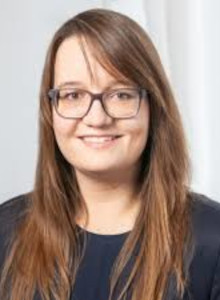

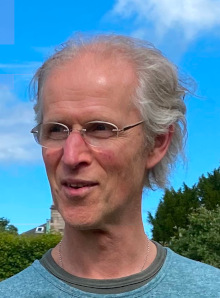
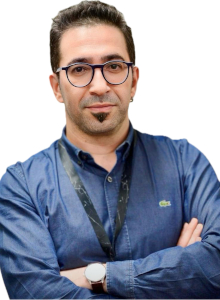

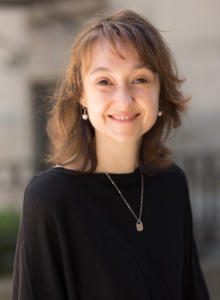
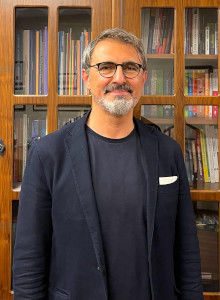

Richard Bennett works as a Clinical and Chartered Psychologist in independent practice and holds a post as an Associate Professor in Psychology at the University of Birmingham. His clinical experience relates primarily to adults with severe and enduring mental health problems, a history of offending behaviour, or both. He is an accredited Cognitive Behavioural Psychotherapist and has significant experience of practice, supervision, and training using a range of approaches from within the Cognitive Behavioural Therapy (CBT) tradition. He has also written a number of psychotherapy related books and journal articles. He is an Associate Fellow of the Albert Ellis Institute and certified by them as an REBT Supervisor.

University of Osnabrueck
My current research interests focus on the cognitive-behavioral and neurophysiological underpinnings of mental disorders, with an emphasis on anxiety, obsessive-compulsive disorders and body image, including body dysmorphic disorder. Future research goals pertain to the efficacy of e-mental health interventions as well as the prediction of symptom development in psychopathology, harnessing the potential of machine learning and digital phenotyping.

My training and the first part of my career as a clinical researcher was at Université Laval (Québec) until 1997 and then at Université de Montréal in Canada. In 2000 I moved to Newcastle-upon-Tyne (UK) and I have been research director for the Doctorate in Clinical Psychology since 2001. From 2000 until 2018 I also held a research, training and development role at the Newcastle Cognitive and Behavioural Therapies Centre, a regional specialist mental health service within the NHS.
My main research interests have been in the field of Obsessive Compulsive Disorder and Generalized Anxiety Disorder and other disorders dominated by intrusive thoughts, worry and rumination. The focus is to extend psychological models of these and other disorders through increasing the degree of specification. Through this strategy I believe we will ultimately develop a knowledge base that will enable treatments to become more effective for those who currently benefit little with existing psychological treatments.

JAMES HAWKINS (UK)
Dr James Hawkins initiated foundation of the Psychedelic Health Professionals Network in 2019. Its mission is to help health professionals and interested members of the general public learn about psychedelics both theoretically and experientially. It provides a variety of services including a free weekly newsletter on emerging research, in person and online lectures, a journal club, supervision, a monthly orientation/integration group, legal Netherlands-based general & meditation focused psilocybin retreats and future Portugal-based MDMA therapist training retreats. PsyEdu, its sister organisation, provides an online one-year, part-time certificate training.
James is particularly interested in psychedelic-assisted therapy’s potential to help a number of difficult conditions including treatment-resistant PTSD, depression, severe end of life distress and substance use problems as well as a growing list of other challenging disorders. James read philosophy at Cambridge before changing to medicine and qualifying as a doctor in 1975. In the 80’s he studied acupuncture in China, helped found the British Holistic Medical Association and started a small Edinburgh-based charity – Good Medicine – which he worked through for many years. He continues to practise as an independent integrative psychotherapist with interests in both helping ease distress and also increase wellbeing.

University of Health Science, Turkey
Kadir Ozdel, got his MD in psychiatry from Ankara University, School of Medicine, Department of Psychiatry (Ankara, Turkey) in 2009. He is a diplomate member & trainer and consultant of the Academy of Cognitive Therapy. He also is secretary general and trainer of The Association of Cognitive & Behavioral Psychotherapies (Turkey) which is a member of the European Association for Behaviour and Cognitive Therapies. He is currently employed as a professor of psychiatry in the University of Health Science, Diskapi YB Teaching and Research Hospital (Ankara, Turkey). His research interests mainly focus on cognitive behavioral therapies, mood disorders, psychiatric assessment and psychopathology. He also the author of self-help books named ”Sosyal Fobiden Hayata Yolculuk- The journey to life from social phobia’ and “Bu takıntılı düşüncelerle ne yapacağım?- What will I do with these obsessive thoughts” as well as more than 50 published papers.

Agnieszka Popiel MD, PhD, is a psychiatrist; professor and Co-director of the Outpatient Clinic of Cognitive-Behavioural Therapy, and the Postgraduate School of CBT at the SWPS University, Warsaw, Poland. Her research is focused on PTSD treatment and prevention. She was a founding fellow of the Polish Association of CBT in 1998, since then involved in training and supervision regulations. Currently she is a member of the Accreditation Committee at the EABCT and a Working Group of Humanitarian Crisis of EABCT. She is co-author of handbooks on CBT (2008,2022) and Supervision in CBT (2013) (with E.Praglowska). The 2022 handbook on CBT has been awarded by the Polish Academy of Science Div. of Psychology. The work on PTSD treatment and prevention (with B. Zawadzki and E.Pragłowska) got the diplomas of the Firefighters Headquarters in Poland.

RACHEL RODGERS (USA)
Northeastern University, Boston
Dr. Rodgers’ interests are in the area of body image, disordered eating and adolescent/young adult psychopathology, in particular focusing on socio-cultural influences on body image and eating concerns. Her research aims both to examine socio-cultural determinants of health-related behaviors but also to generate research which may inform public policy. She is the author of over 50 journal articles and book chapters.

M. HAKAN TURKCAPAR (TR)
University of Ankara
Dr Turkcapar graduated from Hacettepe University Faculty of Medicine in 1990 and completed his psychiatry residency in 1995. After his specialisation, he received cognitive psychotherapy training at the Beck Institute for Cognitive Therapy and Research in the USA in 1997. In 1999, he completed the Primary Certificate in REBT (Rational Emotive Behaviour Therapy) at the Ellis Institute in New York and then the Advanced Certificate training in 2008.
Dr. Türkçapar completed his master’s degree and doctorate in Social Anthropology and received the title of doctor of science in social anthropology in 2009.
In 2003, he was certified as a Cognitive Therapist by the Academy of Cognitive Therapy (ACTand became a Fellow member of the Academy for her contributions to the field. In 2013, he was certified as a Cognitive Behavioural Psychotherapy Trainer and Consultant by the Academy.
Dr. Türkçapar has 4 books on cognitive behavioural therapy, “Cognitive Therapy Basic Principles and Practice” (2007) and “Cognitive Therapy in Clinical Practice: Depression” (2009), “Aware, Think, feel, Live” (2019), A way out of Depression (2021), “I would like to be “clean” (2022) and more than a hundred articles have been published, and since 1999, he has conducted training activities for professionals working in the field of cognitive behavioural therapy in various centres and congresses. He is also the founding editor of the Journal Cognitive Behavioural Psychotherapy and Research, which includes scientific studies in the same field. Dr Hakan Türkçapar received the EABCT award for 2023.
Dr. Türkçapar, is currently the President of the Association of Cognitive Behavioural Psychotherapies and a faculty member and head of the Department of Psychology at Social Sciences University of Ankara.



